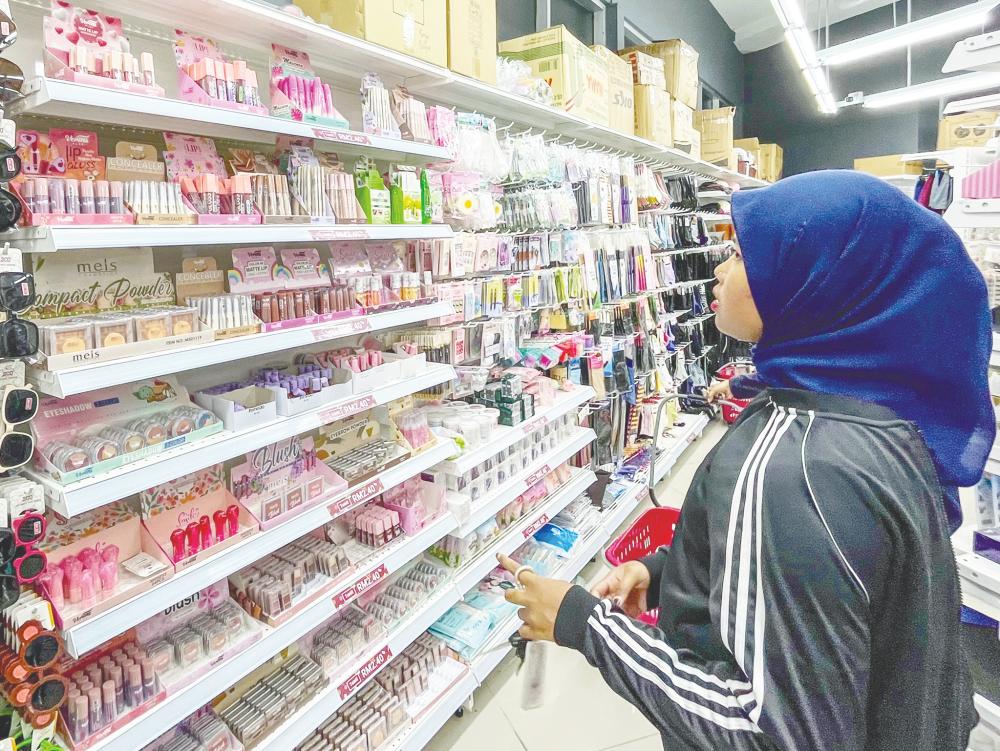PETALING JAYA: The Health Ministry seized RM12 million worth of illegal cosmetics in 1,333 raids conducted from 2021 to November 2024.
Its spokesperson said: “In the same period, we received 204 handovers of illegal cosmetics valued at RM3.2 million that were confiscated by police and the Customs Department.
“The Pharmacy Enforcement Division also took down 2,144 advertisements of (unapproved) or (banned) cosmetic products in popular e-marketplaces.
“Of the number, 645 advertisements were removed in 2024, which is an increase from the 624 removals in 2023 and 386 in 2022.”
The spokesperson said imported pharmaceutical products are required to undergo quality control testing, with manufacturers responsible for releasing compliant batches.
Product registration holders must submit samples of traditional and pharmaceutical products for testing at recognised National Pharmaceutical Regulatory Agency (NPRA) panel laboratories before registration is approved.
“While the ministry implements strict regulations to ensure imported pharmaceutical and cosmetic products meet high safety and quality standards before reaching consumers, some non-compliant drugs and cosmetic products continue to be available on the market.”
Aesthetic dermatology expert and founder of a supplements company Dr Lim Ing Kien said consumers must check the NPRA notification number on product packaging as it indicates that the product has been approved by the ministry.
“Some illegal cosmetics suppliers or distributors have merely inserted a number to evade detection. To minimise risks, consumers should only buy products from reputable pharmacies or authorised retailers and verify the product status on the NPRA website.”
He said the use of banned substances in cosmetics could lead to severe health issues, including organ damage and allergic reactions.
Banned substances include mercury, which is harmful to the kidneys, nerves and skin, or steroids, which require a medical prescription due to potential side effects.
Other banned substances include tretinoin, a prescription-only acne and anti-ageing medication, antifungal medication such as ketoconazole, and high-dose hydroquinone, which could cause skin darkening and irritation.
He said illegal or unregulated cosmetic products are sustained through online marketplaces that are hard to monitor due to sellers hiding behind fake accounts or using foreign shipping routes to evade detection.
“Unregulated import channels allow products to bypass official checks while mislabelling enables items containing prescription-only ingredients to be sold as cosmetics.”
He said limited enforcement resources complicate monitoring, given the high volume of goods entering the country, and stressed the need for stricter inspections and more random sample testing.
Lim said proactive online surveillance involving the government, marketplaces and payment providers could help shut down rogue sellers while encouraging whistleblowers and imposing heavy penalties for repeat offenders could curb the illegal trade.
He also said educating retailers and pharmacies is vital to ensure product safety since monitoring illegal cosmetics is challenging due to limited ministry resources and the large number of brands and online shopping platforms.
According to him, complaints often serve as starting points for the ministry to act while proactive monitoring could improve with artificial intelligence-based web crawlers and additional funding.
He added that providing easy access to product verification via user-friendly websites or apps, in which barcodes can be scanned or notification numbers checked, would empower consumers to make safer purchasing decisions.
“Instead of chasing fast results or relying on miracle cures, we should focus on long-term, science-backed approaches to skincare and health.
“Authorities should take proactive measures by investing in more resources, technology and surveillance to prevent harmful products from reaching consumers,” he said.









